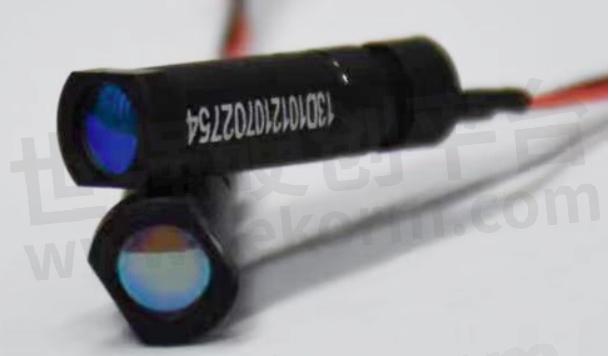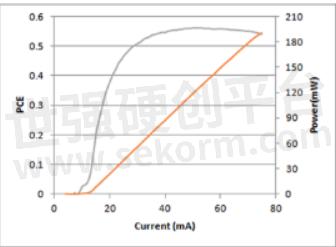LEMON Photonics VCSEL Spot Laser Module Solution with Outstanding Performance

As laser devices are more and more widely used in robot products, from commercial sweepers, AGVs, food delivery machines, etc., to civilian sweepers, power tools and other terminal applications have appeared point/line laser modules.
As a domestic Vcsel chip design and production enterprise, LEMON Photonics can not only provide industry-specific point/line laser modules but also provide personalized customized product solutions according to the application scenarios of end customers.
Product solutions at a glance
In order to solve the problems related to different solutions, LEMON Photonics proposed a variety of solutions respectively. They are:
▶ VCSEL point laser module scheme for triangulation measurement stereo vision
▶ Multi-junction VCSEL Spot Laser Module scheme for dToF
1. VCSEL point laser module scheme for triangulation measurement of stereo vision
In relatively widely used stereo vision and ToF schemes, traditional lidar light sources generally use edge-emitting lasers (EELs). In view of this, LEMON Photonics provides a laser light source scheme with better performance for the mainstream LDS SLAM system based on its self-developed high-performance vertical cavity surface emitting laser chip (VCSEL) and horizontal cavity surface emitting laser chip (HCSEL).
Compared with the traditional EEL collimation module, LEMON Photonics' VCSEL series spot laser module (Figure 1) adopts a customized VCSEL single-point chip, which has the advantages of small temperature drift coefficient, high spot roundness, and uniformity, strong antistatic ability, high reliability, easy packaging, and high-cost performance compared with traditional EEL collimation module. The product has passed the performance and reliability verification of a number of lidar solution providers and intelligent robot end customers and has entered mass production.

Figure 1: VCSEL point light source module for lemon photon triangulation lidar measurement
2. Multi-junction VCSEL point laser module scheme for dToF
LEMON Photonics also introduced the industry-leading multi-junction VCSEL chip family with peak electro-optical conversion
The efficiency can reach 56% (Figure 2).

Figure 2: Measured LI and PCE data of LEMON photonics multi-junction VCSEL chip (test conditions: 200ms pulse width, 1% duty cycle)
It can be seen that this series of products have the characteristics of high power density, high reliability, and excellent high-temperature performance, and is widely used in short pulse (ns class) and high peak power applications. Multi-junction technology represents the next leap forward in the VCSEL industry, bringing many advantages to machine vision applications. High power density can reduce package size and optimize system architecture, while high electro-optical conversion efficiency can reduce the thermal load of the whole machine, and high slope efficiency can reduce pulse current, thereby improving the switching speed of the driver chip.
In summary, VCSEL technology has many advantages over EEL, and the point laser collimation module based on multi-junction VCSEL is expected to replace the traditional EEL module so that the dToF lidar scheme can be more widely used in the field of robot vision.LEMON photonics VCSEL spot laser module solution with outstanding performance.
- +1 Like
- Add to Favorites
Recommend
- LEMON Photonics Large-angle Flat-top Field VCSEL Light Laser Module Scheme for ToF
- High-performance Multi-junction VCSEL Laser Chips Boost Lidar and 3D Sensing
- 808nm VCSEL Application: Semiconductor Laser Hair Removal
- Coherent Reports Significant Advancement in VCSEL Performance for Next-gen AI Networks
- Coherent Introduces VCSEL-Based Illumination Module Platform for Short- and Mid-Range Automotive and Industrial LiDAR
- HCSEL Core Technology “Chip-level“ Line Laser Projection Module Made A Heavy Appearance
- Spot Cooling for Industrial Lasers & Optics
- II-VI Unveils VCSEL Flood Illuminator Modules for Driver and Occupancy Monitoring Systems in Vehicles
This document is provided by Sekorm Platform for VIP exclusive service. The copyright is owned by Sekorm. Without authorization, any medias, websites or individual are not allowed to reprint. When authorizing the reprint, the link of www.sekorm.com must be indicated.





























































































































































































































































































































































































































































































































































































































































































































































































































































































